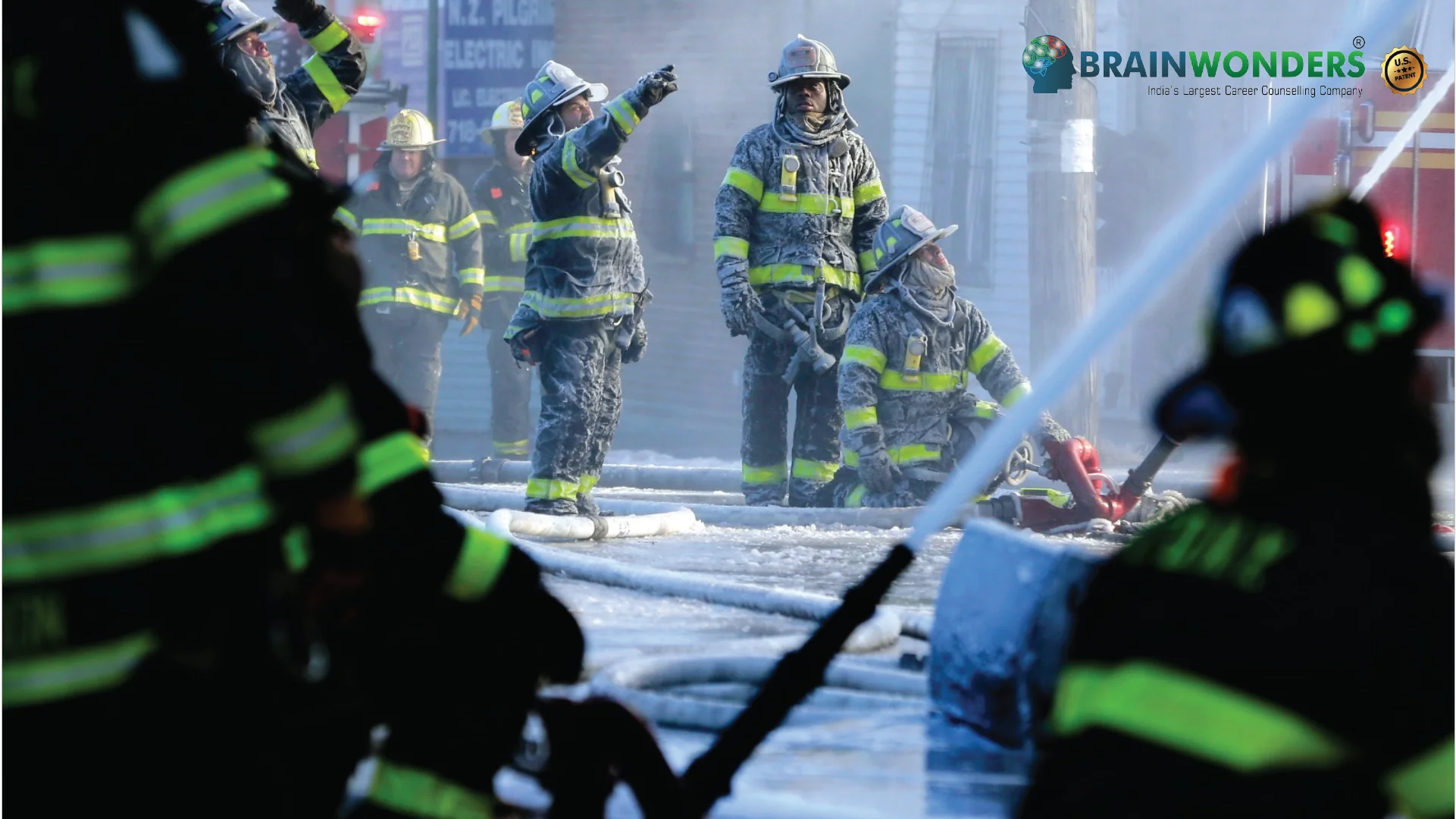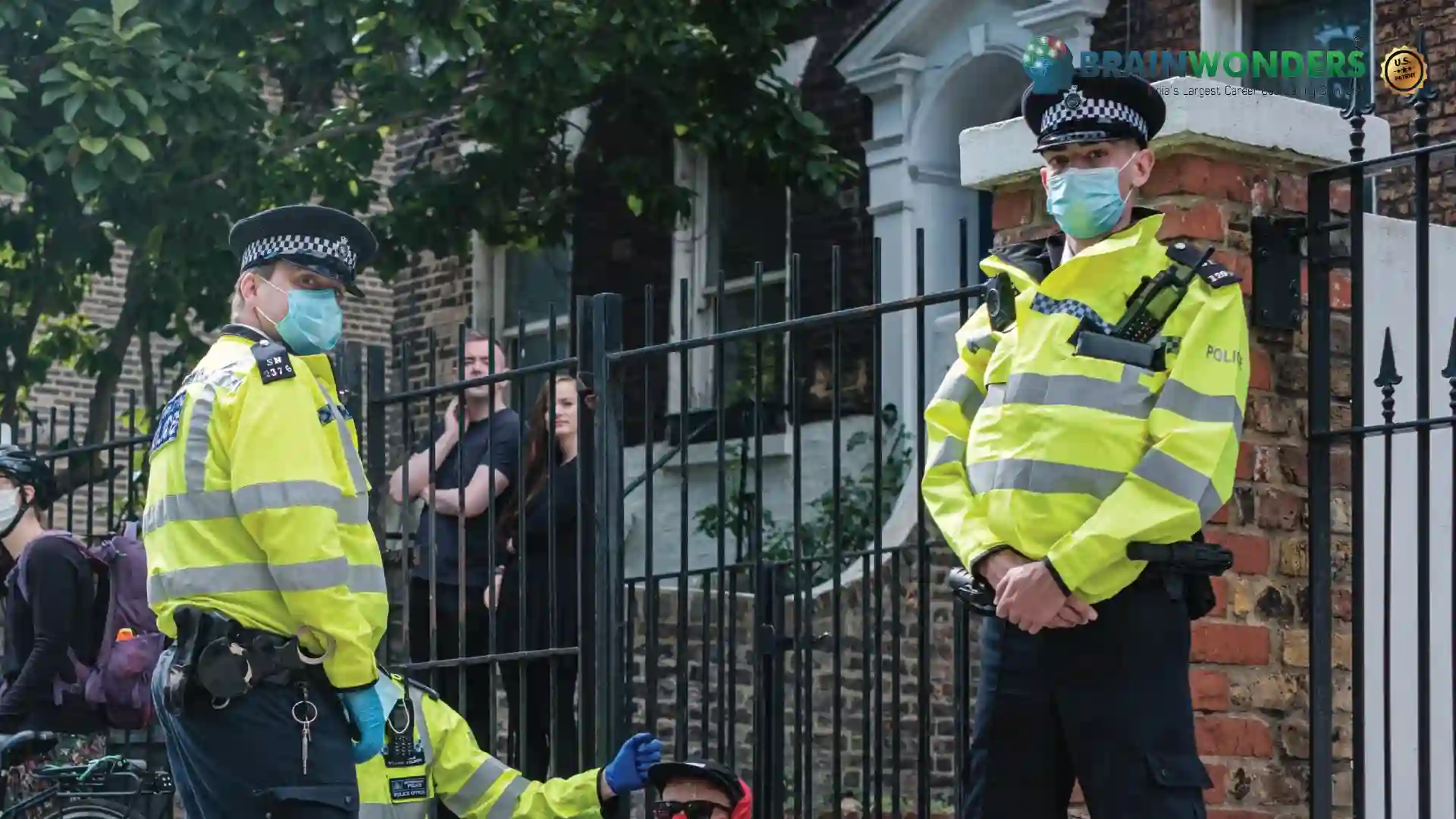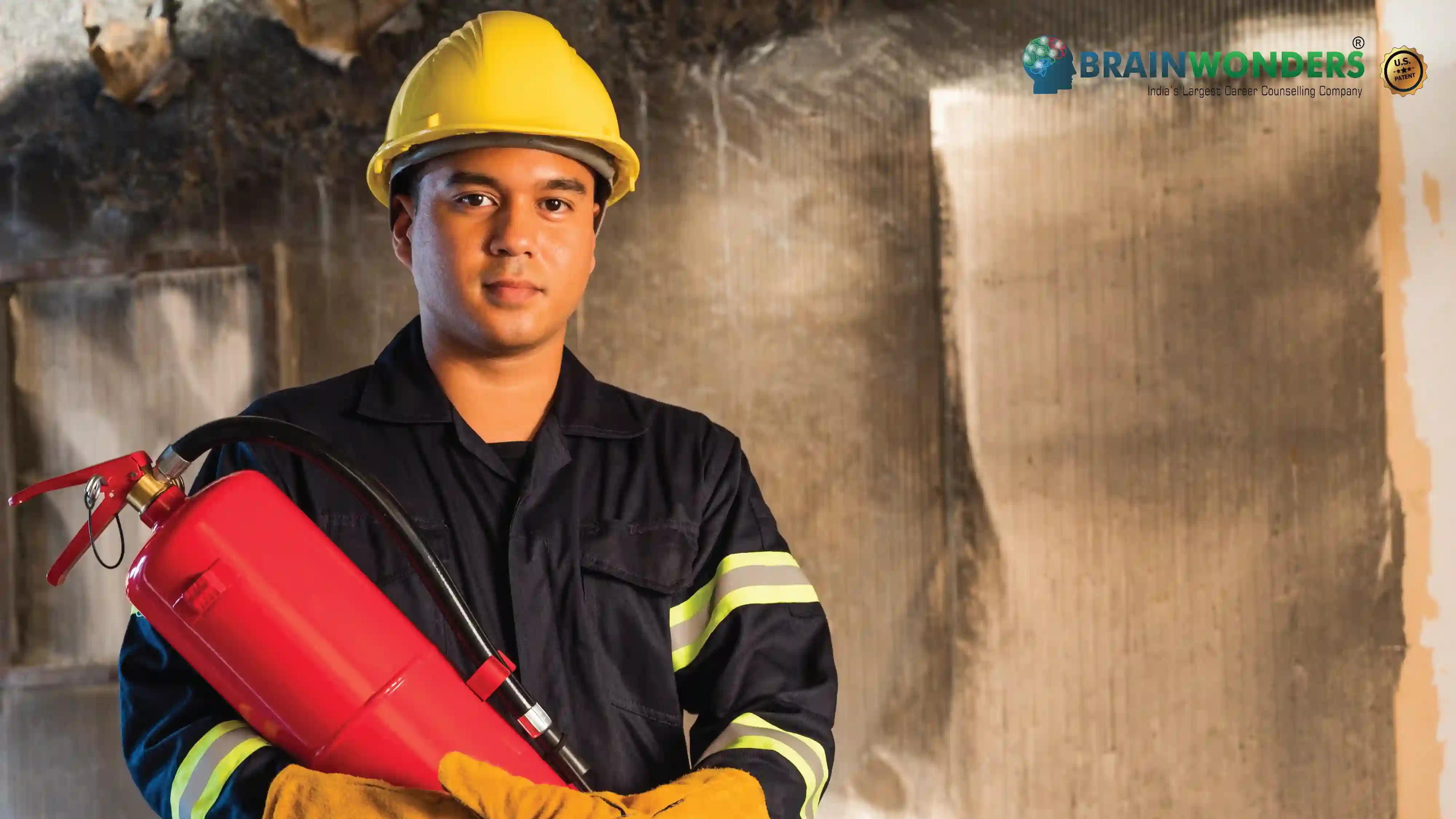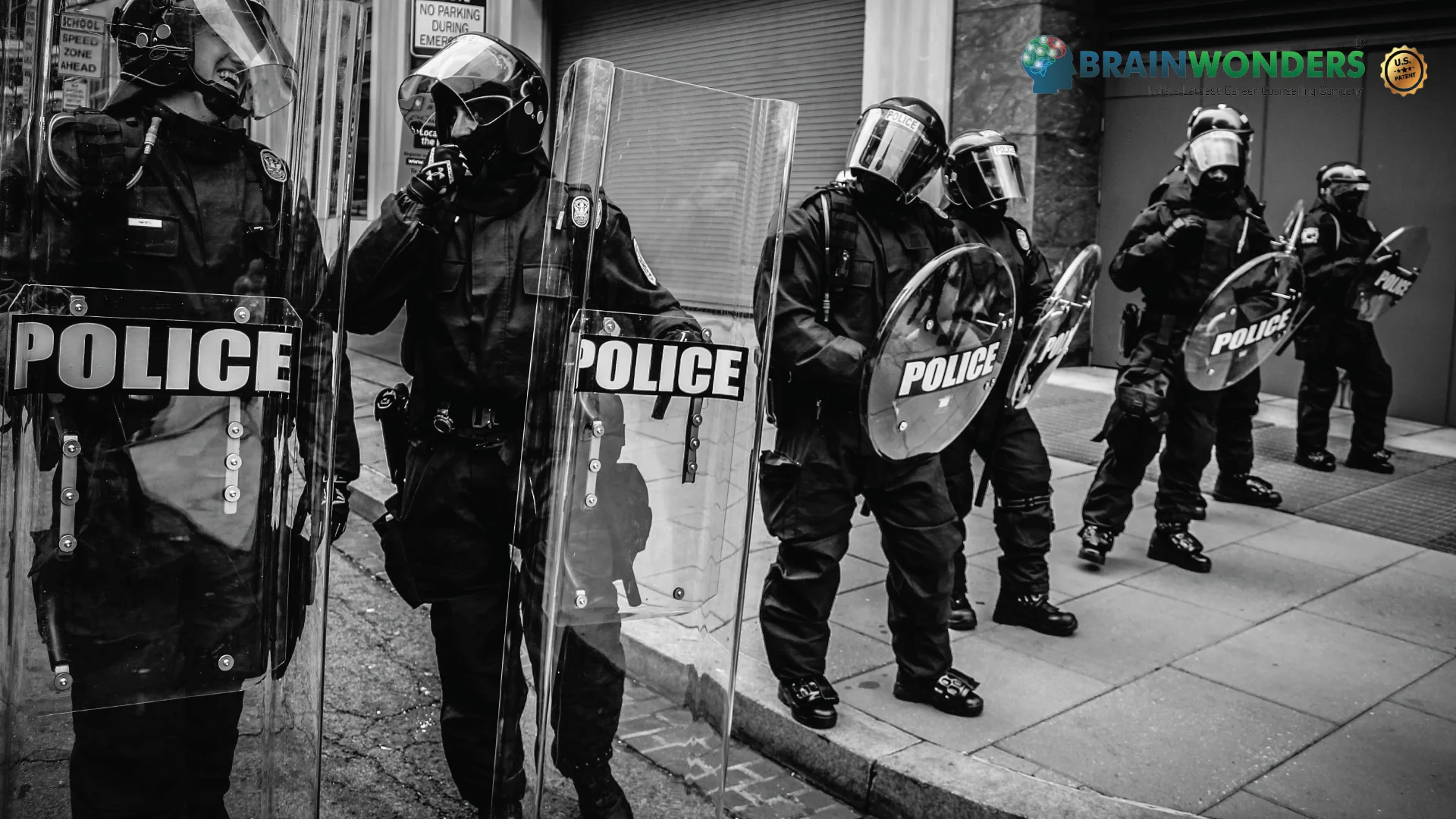How to become a Municipal Firefighter
Overview, Courses, Exam, Colleges, Pathways, Salary

Overview
Who is Municipal Firefighter ?
Step 1
Interested candidate has to appear in a written entrance test conducted by various institutions providing on the job training that may vary from 6 months to 12 months. The written examination commonly consists of approximately 150-200 multiple - choice questions.
Step 2
After qualifying written test the aspirants are required to go for a physical endurance test followed by medical examination and psychological examination of the aspirants. This physical agility examination is designed to evaluate the candidate's ability to d fire-fighting activities. This physical agility examination is related to the tasks that are actually performed by fire-fighters. This test is so designed as to ascertain that the firefighter must have a high level of aerobic energy, strength, and a significant ability to resist fatigue.
Considering the demands of the profession i.e. saving life and property of the public that too without much damage to themselves along with the challenges of the environment, and the weight and constraint of the protective equipment, the need to ensure that fire-fighter recruits are physically capable and medically fit of learning and performing the tasks required is considered the most important part of recruitment criteria.
Step 3
After clearing this physical endurance test and medical and psychological test the aspirants are inducted into the force as a trainee for on job training of various sophisticated instruments to be used in various conditions of exigencies according to their area of work at different places of their requirement.
Typical day at work
What does Municipal Firefighter do?
Although they are primarily responsible and trained for fighting the fire of different kind they can also play major roles in the evacuation of the people safely from other calamities fire just because of their sensitivity towards their job of saving lives from the clutches of death. For performing all these tasks satisfactorily they are equipped and trained to handle variously sophisticated as well as traditional equipment. One of the most important aspects of the firemen's work is to ensure that all rescue equipment is thoroughly checked on a daily basis and maintained in good order to be in a serviceable condition at all times. When approaching a fire scene the firemen have to assess what type of fire they have to deal with and select the appropriate extinguishing agent, since different kinds of fires require different extinguishing agents and methods to accomplish satisfactory results. They may have to fight various types of fires, ranging from wildfires to fires involving buildings, vehicles, aircraft or installations, each of which creates its own problems and difficulties. For doing this entire thing they need to be fighting fit and professionally trained only then they will be able to save the lives of the people with a minimal threat to their own life.
Abilities and Aptitude needed
What are the skills, abilities & aptitude needed to become Municipal Firefighter?
Firefighters must have integrity like honest, trustworthy, reliable and accountable.
They should have physical fitness such as the ability to perform physical tasks.
They possess good communication like people skills and good articulation.
They should have the flexibility/adaptability like low-maintenance, work under stress, compromising, adapt and overcome.
Other skills expected from them are dedication (passion, pride, heart, desire, drive, competence, work ethic); team player; tolerance along with a public image.
Salary
Salary for Municipal Firefighter?
Salary of A Municipal Firefighter is as follows :
- Minimum Monthly Salary for an Entry-Level Municipal Firefighter: The starting salary for an entry-level Municipal Firefighter can vary depending on location, department size, and specific circumstances. In India, novice Municipal Firefighters might earn a monthly salary ranging from approximately INR 20,000 to INR 40,000 as they embark on their firefighting and emergency response careers.
- Maximum Monthly Salary for Experienced Municipal Firefighters: Experienced Municipal Firefighters, especially those holding leadership positions, specialising in specialised firefighting techniques, or working in high-demand urban areas, have the potential to earn a higher monthly salary. Their earnings could extend from approximately INR 60,000 to INR 1,50,000 or more, reflecting their expertise and contributions to public safety.
- Annual Salary Range for Junior and Accomplished Municipal Firefighters: Junior Municipal Firefighters, starting with limited experience, might anticipate a yearly salary ranging from approximately INR 2.4 lakhs to INR 4.8 lakhs. As Municipal Firefighters accumulate substantial experience, undergo advanced training, and demonstrate exceptional performance in emergencies, they can strive for an annual income ranging from INR 7.2 lakhs to INR 15 lakhs or beyond.
- Highest-Paying Job Opportunities and Scope: Promising employment opportunities for Municipal Firefighters often exist within established fire departments, urban fire stations, specialised response teams, and municipal public safety organisations. Firefighters specialising in hazardous materials response, technical rescues, or wildfire management typically have a higher earning potential. The scope of the firefighting profession is robust, as Municipal Firefighters play a pivotal role in protecting lives, property, and communities from fire-related emergencies. With the ongoing emphasis on public safety and emergency preparedness, along with increasing urbanisation, the demand for skilled Municipal Firefighters is projected to rise. This growth offers significant prospects for career progression, specialisation, and leadership within the firefighting and emergency response field.
Pathways
How to become an Municipal Firefighter?
Entrance Exam
Entrance Exam for Municipal Firefighter ?
Courses
Which course I can pursue?
Best Colleges
Which are the best colleges to attend to become an Municipal Firefighter?
Industries
Which Industries are open for Municipal Firefighter?
Municipal Firefighters are highly trained professionals who play a vital role in ensuring public safety and responding to emergencies. While their primary focus is firefighting and emergency response, their skills and expertise make them valuable assets in various related industries. Some of the sectors open for Municipal Firefighters include:
- Fire Departments: Municipal Firefighters are an integral part of local fire departments, responding to fires, accidents, medical emergencies, and hazardous incidents within their communities.
- Emergency Medical Services (EMS): Many Municipal Firefighters are also certified as Emergency Medical Technicians (EMTs) or Paramedics, allowing them to provide crucial medical assistance in emergencies.
- Search and Rescue Teams: Municipal Firefighters often collaborate with search and rescue teams to locate and assist individuals in challenging environments, such as wilderness areas or collapsed structures.
- Hazardous Materials (Hazmat) Response: Firefighters with specialized training in hazardous materials response play a critical role in containing and mitigating chemical, biological, radiological, and nuclear incidents.
- Urban Search and Rescue (USAR): These specialized teams of firefighters respond to large-scale disasters, such as building collapses or natural disasters, to rescue individuals trapped in debris.
- Fire Prevention and Education: Municipal Firefighters contribute to community safety by conducting fire safety inspections, providing public education, and promoting fire prevention awareness.
- Government and Public Safety Agencies: Municipal Firefighters can work within broader public safety departments, collaborating with law enforcement, emergency management, and other agencies to ensure comprehensive emergency responses.
- Wildland Firefighting: Municipal Firefighters may work with state or federal agencies to combat and contain forest fires in regions prone to wildfire.
- Industrial and Commercial Facilities: Some larger industrial or commercial complexes employ Municipal Firefighters as part of their on-site emergency response teams to handle incidents specific to their operations.
- Training and Education: Experienced Municipal Firefighters may transition into roles as fire training instructors, helping to train the next generation of firefighters and emergency responders.
- Disaster Management and Preparedness: Municipal Firefighters can be involved in disaster planning, preparedness, and recovery efforts, both at the local and national levels.
- Consulting and Safety Organizations: Their expertise in emergency response and safety protocols can lead Municipal Firefighters to consulting roles for businesses, organizations, and government agencies.
internship
Are there internships available for Municipal Firefighter?
Internships provide valuable practical experience and insights for individuals aspiring to become Municipal Firefighters. While internship offerings may vary based on location and fire department policies, here are potential internship opportunities available for those interested in pursuing a career as a Municipal Firefighter:
- Fire Departments: Many fire departments offer internships that allow participants to shadow and assist firefighters during their shifts. Interns may gain exposure to firefighting techniques, equipment usage, emergency response protocols, and daily duties.
- Fire Training Academies: Fire training academies may provide internship programs where participants can engage in hands-on training exercises, learn about fire behaviour, practice rescue operations, and develop physical fitness.
- Emergency Medical Services (EMS): Interns can work with EMS units to learn about providing medical assistance at emergency scenes, understanding patient care, and observing the collaboration between firefighters and medical personnel.
- Search and Rescue Teams: Internships with search and rescue teams offer participants the chance to learn about locating and rescuing individuals in challenging environments such as wilderness areas, collapsed structures, or water bodies.
- Public Education and Outreach: Fire departments often conduct community outreach and education programs. Interns may assist in organizing and delivering fire safety workshops, presentations, and demonstrations to schools and community groups.
- Emergency Operations Centers (EOCs): Interns working in EOCs may gain insights into emergency management, disaster response coordination, and interagency collaboration during emergencies.
- Wildland Firefighting Agencies: For areas prone to wildfires, interns can work with wildland firefighting agencies to learn about wildfire suppression, prevention strategies, and equipment operation.
- Fire Investigation Units: Some fire departments have specialized units focused on investigating the causes of fires. Interns in these units may participate in evidence collection and fire scene analysis.
- Public Safety Departments: Interns can work within broader public safety departments to gain exposure to various emergency response disciplines, including law enforcement, emergency management, and disaster preparedness.
- Disaster Relief Organizations: Internships with organizations focused on disaster relief and humanitarian aid may provide participants with experience in emergency response, relief efforts, and community support.
Career outlook
What does the future look like for Municipal Firefighter?
There are vast employment chances for firefighters in large manufacturing units particularly those involved in the manufacturing of chemicals or inflammable substances like petroleum refineries, petrochemicals and plastic, fertilizers, textiles, LPG and LNG handling and bottling plants, chemicals and other plants where there are risks of fire. Besides, firefighters are also employed by fire departments of local government, insurance companies, aircraft industry, and an area of safety where the possibility of fire or combustion represents a hazard. An experienced Firefighter may also work as surveyors in insurance companies to give the correct assessment of the loss of the clients due to fire incidents in their units etc.



